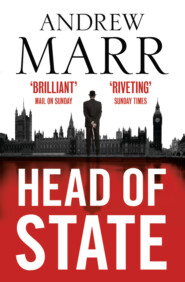По всем вопросам обращайтесь на: info@litportal.ru
(©) 2003-2024.
✖
The World I Fell Out Of
Настройки чтения
Размер шрифта
Высота строк
Поля
It must be a morphine moment. She would drift away in a minute.
‘THE Su Pollard?’ I said.
‘Sounds like her.’
‘But I don’t know her.’
‘It’s you she asked to speak to.’
Too random. Had to be opiates. The nurse held the phone to my ear and I had a short, apparently lucid conversation with someone who sounded exactly like the hapless holiday camp chalet maid Peggy Ollerenshaw whom I’d occasionally seen on TV thirty years ago.
Of all the people I least expected to discuss my plight with, it was Peggy Ollerenshaw. (© Getty Images/United News/Popperfoto/Contributor)
‘Your article moved me so much I had to phone you and speak to you. You’re very brave and I send you lots of love,’ she said.
‘That’s really sweet of you,’ I said lamely.
‘I’m rooting for you.’
‘Thank you.’
I still don’t know if it really happened or not.
At night, I experiment with the only bit of my body that still answers me, that has a glimmer of feeling. My right hand, weak and floppy and fast becoming numb, fumbles down past layers of exhausting obstacles, past sheets and tubes and swaddling gowns to reach the bare skin of my hip. Exploring in the dark. The one-way sensation of touching my own warm skin, and feeling nothing back, is most peculiar, as if it is an alien I am attached to. My fingers are not giving me trustworthy signals, because their nerve connections are damaged too, and retreating further into shock. What’s so devastating is that the skin I touch feels fleecy, beautiful, devastating; all these things at the same time. Because it belongs to me but it doesn’t belong to me. It’s someone else’s; it’s like reaching down and touching your lover’s body in the night. How peculiar. Four-fifths of my body has divorced me, but it’s still attached to me. I’m two people – me and the rest of me. I am eerily still … but inside I’m screaming and waving. I’m helpless as a beetle on its back, except my legs don’t even wave to express it. My name, it would seem, is still Melanie and I am a doubly-incontinent tetraplegic. Where do I go from here, seeing I have already blurted out something about Switzerland and Dr Purcell didn’t respond?
The movie Trainspotting was really accurate, you know. The stuff about coming off morphine, when your body is a seething rats’ nest and nothing will calm it. Although I didn’t realise what was happening at the time, because I didn’t even know I had been on morphine. All I knew was that it felt worse than anything I’d ever experienced. Even though my body was paralysed and insensate, I felt that it was jangling all over, itching, shivering – compelling me to cry out for relief, for death, for anything to make it stop. Inside my brain, restless leg syndrome multiplied a million times, ants crawled inside my skin, devouring me from within. One vivid day I became convinced my bedding was soaked. The mattress and bottom sheet were sloshing in icy water: I was certain I was freezing alive, shivering, nagging for more blankets.
‘I can’t give you any more blankets,’ said the nurse. ‘You’re not cold.’
‘Please, I’m freezing,’ I wheedled. ‘Please. Be kind.’
‘Kind?’ she said. ‘Heart like a swinging brick, me.’
She wasn’t joking. She was on duty one weekend morning when they were desperately short-staffed – they often were at weekends – and running very late, taking hours it seemed to me to attend to each of us high-dependency patients in turn, log-rolling us to wash us. The morphine withdrawal must have been at its peak, for I started crying out from the sensations in my head. Outwardly motionless on the bed, I was inwardly consumed by chemical distress and bewilderment. I could see them log-rolling someone else in the distance; although I must have been imagining it, because the curtains were always closed when they were washing someone. The room kept changing in shape. I shouted again but still no one came. Of all I had experienced after my accident, in its totality, that was my most desperate lonely moment, the point when I couldn’t go on. Like someone near death, my instinct was to shout for my mother. But she was dead, I knew that, so I shouted for my sister. She lived in France and I had not yet seen her, but I had regressed to childhood; my big sister would make it better. Lindsay would make them help me.
‘What d’you want?’
It was Swinging Brick and she was pissed off.
‘I feel awful,’ I said. ‘Please …’
‘We’re busy with other patients. We’ll get to you when we can.’
I never cried out again.
Lots of other patients vocalised their distress; I listened jealously to them screaming and yelling, calling out repeatedly. I was too repressed, too polite. Posh girl in bedlam. It’s only funny now, much later. How I used to envy them their release, these unseen uninhibited souls who raged aloud, who set loose their pain upon the world at large. I wished I too could wail and curse. The way I’d been brought up, you suffered in silence, you were never rude, never made a fuss. There was one voice I often heard shouting at night – a young argumentative male who roared with anger and rage, despair coming from the deepest, darkest torture chamber. ‘Why?’ he used to shout. ‘Why can’t I fucking move? Just tell me why.’
I asked Christine about him.
She sighed. ‘Oh, that’s Snafu. He’s one of mine too.’
‘Is he OK?’
‘He’s finding it hard.’ She sounded sad. She didn’t say any more. I would find out later for myself.
In general the cursing was epic. Legendary. When West of Scotland working man meets catastrophe all he needs is a victim to let rip upon. The spinal unit had a resident psychologist, a gentle New Zealander, a bit of a waffler who must have helped some people lost in the shock of paralysis, but I found him irritating. Everything he said seemed anodyne. But then who wouldn’t seem ineffectual, with the unenviable job of counselling people in the rawest of grief? We existed in a world beyond platitudes, beyond consolation. On the ward, I still couldn’t raise my head to see anything but I lay and listened, as would a blind person, to the voices and the noises.
The darkest of five-star entertainment came one afternoon when the psychologist was sent to counsel an older man who was refusing to cooperate with the nurses. Grunt was a tiny Glaswegian hardman, paralysed from the neck down, who was taking his plight as a personal insult and was either beyond or incapable of reason. He launched a verbal assault upon the hapless Kiwi, a tsunami of violent Glasgow kisses which no curtains round a bed could confine. His tirade was loud, sustained, fluent, uninhibited and utterly priceless: the hairdryer treatment, poetry of the utterly profane, articulating all the pain and fury inside him. Grunt was no doubt a talented curser already, but neuroscience shows that swearing actually helps people biologically to relieve extreme distress, and he was going for it. The caress of the damned, it occurred to me.
‘Fuck off. Who the fuck are you? Jesus fucking Christ what’s it to you? What the fuck do you fucking want? Yer fucking useless waste of space, yer fucking stupid idiotic cunt, nah, nah, get out of my fucking face yer fat cunt and leave me alone.’
‘Now I git it why you’re upsit,’ said the Kiwi, his voice high and mild.
‘Upset, you useless piece of shit? I’ll give yer fucking cunting upset, you bastard.’
‘B-b-but it would hilp to talk, chick out some thoughts, it’s nicissary for you to ixpress yoursilf …’
‘If I could fucking move I’d fucking express maself, I’d wring yer fuckin neck. Just get to fuck … right?’
‘Yis, Grunt … I understand.’
‘Away back to Australia yer stupid speccy bastard, yer useless cunt. Someone should have drowned ye at birth.’
And so it continued. Lying on my back, silently chortling, I was joined by one of the nurses, who dashed in behind my half-pulled curtain, stuffing her apron in her mouth to silence the giggles. We shared a wonderful private, silent moment of hilarity. It was the first time I had laughed since the accident.
Perhaps it was the third week in high dependency when I became aware lots of things were starting to happen. I’d regained the breathing; now it was basic stuff like drinking normally. Previously, much as I had pleaded, the specialist designated two-woman swallowing team, who came round and judged these things, had deemed me unfit to do so. They were the Fat Controllers of the gullet: at one point, they tested me with a sip of tea from a straw while they stood and watched, unsmiling, pens poised over clipboards. They seemed spectacularly humourless, these specialist teams. I sucked with a degree of arrogance. Of course I was fine! But much as I craved it, drinking was weirdly difficult. I found myself spluttering, coughing, and they shook their heads and took the tea away.
After that, I stopped pushing against the system. A few days later, they granted permission. A kindly staff nurse, to whom I had confided my fantasy about a latte, went and bought me one from the café. But what I had yearned for tasted acrid, strong, too hot. I turned instead, gratefully, to sucking weak, tepid, milky NHS tea – baby tea, they called it – through a straw, as she held the cup. I couldn’t believe that I couldn’t hold a cup by myself, but then I had not even started to address the size of physical loss which I faced. Denial piled up on itself; like bricks in a wall. I had nowhere near yet exhausted what Brian Keenan called the strategies of denial, convincing myself that if I could just take back control and start doing things for myself, then all would return to normal. I thought my hands would work if I really asked them to – of course they would! – so I asked the nurse to leave that day’s pile of greetings cards upon my bedclothes in front of me, rather than set them aside for Dave. Anyone can open an envelope! Surely! I tried to pick up the top card and watched with bewilderment as my fingers refused to grip. I didn’t even get to the stage of finding out they couldn’t rip paper. Then the cards slid slowly off my chest onto the floor and I watched them go, passive and helpless. So much for Get Well Soon.
My right wrist, though, had something still going for it. There was still strength there. The hand therapist Leslie had come to see me and, upon her instructions, Dougie went shopping and found me a travel cup with the handle open at the bottom. I could wedge my palm under the handle and lift a mug of that precious baby tea high enough up to drink through a straw – my first independent action. Likewise, when the Gullet Controllers had carried out Protocol Two Testing, Permission to Take Solids, I was given yoghurts and found I was just about able, by myself, to dig in a spoon and then transfer it to my mouth. The feeding tube, a ghastly uncomfortable thing that had been strapped to my cheek and down my throat for weeks, was withdrawn – a peculiar sensation as the nurses reeled the long, thin pipe out of my stomach via my nostrils, as if hauling in the garden hose. At the time I took little notice of such progression, unimpressed, impatient merely that I was so feeble at simple tasks. As I mocked and fretted, denial built. Only later, wiser and humbler, did I come to understand the extraordinary significance of this hand–mouth coordination, and how lucky I was: so many people with broken necks, several of them in the unit with me, could not do this basic task and were doomed to total dependency in order to survive. Others needed months of hand therapy, and specially adapted implements, to be able to drink by themselves or reach their mouths with food.
Time to sit up a little, another milestone. I was fitted with a white collar, like a Star Wars Storm Trooper, so that my neck was supported when my bedhead was raised a few degrees for the first time. This meant my first view of the new world. It also meant I saw my legs for the first time. Not good. Nothing – nothing at all – can prepare you for the appearance of those paralysed limbs, sprawled where you do not feel them to be on the bed, lifeless and somehow deeply misshapen. Someone else’s legs, not yours. I felt physically sick. They looked like the Guy Fawkeses we made as children for bonfire night, newspaper stuffed into an old pair of tights, puffy and lumpy in the wrong places, knees and ankles askew like scarecrows. These weren’t my legs at all; they were horrific, alien objects.
Perhaps that’s what happens when you face sudden, extreme disability as an adult: a sense of disconnect, of disbelief, which I can best describe as a compound fracture of the soul. Losing the use of one’s legs is profound, an event so fundamentally wrong that it catapults you through a door which no one else who has full function can possibly enter, into a place which often is the loneliest place in the world. Humans were not meant not to be able to walk; we are hard-wired to move, and at the deepest level we understand that in movement lies our ability to survive, to feed, to keep warm, to seek shelter, to procreate, to interact. Mobility is caveman stuff – we are programmed to understand, somewhere in our ancient genes, that those who cannot keep up are left behind to the wolves. When wild animals and primitive people fall ill, or fail with age, or grow lame, they drop back from the herd. It is natural. Those who cannot walk are left behind; they become isolated; their weakness overtakes them; they stop, lie down and die. Elephants do it; sheep do it; Native American people did it. By allowing the healthy to move on, unburdened, nature ensures the survival of nature. Walking therefore has a grip over our imagination, which helps to explains healthy people’s subconscious prejudice against wheelchairs, manifest in their impatience and irritation and sometimes open hostility. Civilisation in certain instances can desert us in a flash, because deep down it’s about life or death. Walk and win. Go off your feet and you’re history.
Long legs were good for skiing. In the Alps in the yuppie 1980s.
Now I’m sure everyone, should they ever be forced to part with them, would be partial to their own legs, but I’d always been particularly attached to mine and my initial feeling was absolute bewilderment. They weren’t slim or beautiful, my legs, but they were so unusually long they defined who I was: a thirty-six-inch inside measurement, longer than most men’s, making me over six feet tall without shoes on. I liked that. They gave me scope, shaped my identity: in their time they had pogoed to punk bands, skied down black runs, ran half marathons, walked up mountains and done crazy charity endurance stunts. This is humblebragging, isn’t it? I’m boasting, pathetically, about something I don’t possess any more. But it is the only way I can plot the scale of my loss. My legs were my closest allies, my ever-ready Amazonian accomplices, enabling me always to skip away from bores and bossiness and bureaucracy. Catch me if you can. All of which made my present situation even more difficult; the sense of bereavement even more profound. Without my legs, I was baffled. What now? I’m sure every sporty person, every individualist and risk-taker who has ever damaged their spine, feels the same. How did we bridge the imagination gap between what was, and what is? Who was this godforsaken new person who could not move? I did not know them. Nor did I know what they might become. Nor, quite frankly, did I have any intentions of finding out. I was going to get better.
Paralysis. The Venerable Bede prescribed a cure. ‘Scarify the neck after the setting of the sun and silently pour the blood into running water. After that, spit three times, then say: “Have thou this unheal and depart with it.”’
Paralysis. According to Wikipedia, defined by the loss of voluntary movement or motor function. A late Old English word, via Latin from Greek paralusis, from paraluesthai ‘be disabled at the side’, from para ‘beside’ + luein ‘loosen’. A term used figuratively from 1813.
Paralysis. According to the Egyptian physician Imhotep, 3,000 to 2,500 years BC: ‘If thou examinest a man having a dislocation in a vertebra of his neck, shouldst thou find him unconscious of his two arms and his two legs on account of it (and) urine drips from his member without his knowing it, his flesh has received wind, his two eyes are bloodshot … he has an emissio seminis which befalls his phallus, thou shouldst say concerning him, “an ailment not to be cured”.’ Give or take the phallus, old Imhotep was spot on.
Paralysis: all in all, a complete bastard of a word.
The human skeleton is designed to protect your core nervous system at all costs: the vertebrae link like chain-armour around it, grow bony spikes on the outside to foil intruders. The spinal cord is the wiring from central command and control; it is the engine of your free will; the power and pleasure of your flesh. When the spinal cord is damaged, it is indeed like a nuclear attack, the ultimate hit. Your body does everything it can in defence: it shuts down, retreats into itself, sends fluid to the site of the injury. Every resource available goes to the core and the extremities get forgotten about. The surface of your hands and feet become thickened and leathery with excess skin. Your heart rate slows, you start to retain litres of water and swell all over. The body remains in a state of suspended animation for four to six weeks, during which time accurate diagnosis of the extent of your injury can be impossible. Some weeks after my accident a deep ridge started to emerge from the cuticles at the bottom of my fingernails and slowly grew its way up: a tremor in my body’s rock stratum; a record of the geological seismic shock within me.









